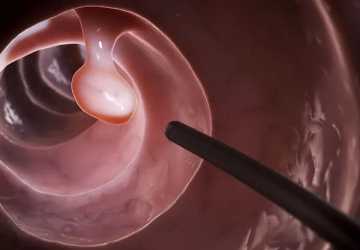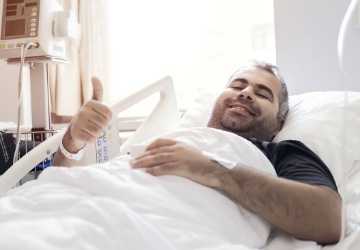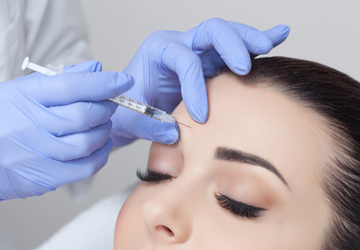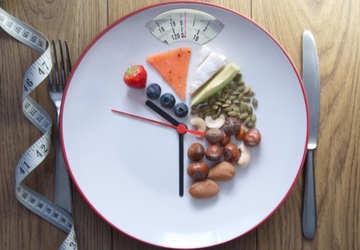beauty
Colonoscopies are crucial in maintaining health, especially detecting and preventing colon cancer. This process helps your doctor to get a close-up view of your large intestine. Doctors can spot any unusual growths or changes in your colon using a thin, flexible tube with a tiny camera.
This procedure helps catch potential problems before they become serious. It's not just about finding cancer; your doctor can also spot and remove small growths called polyps.
You'll be sedated and comfortable during the exam. The process usually takes less than an hour, though you might need someone to drive you home afterwards.
The actual exam is typically quick and painless. However, preparation often causes patients the most anxiety. But don't worry—you can handle it smoothly with the correct information and approach.
This guide provides practical tips and advice on preparing for your colonoscopy. We'll address common concerns and provide step-by-step guidance to ensure your readiness for the procedure.
Read more and demystify this important health screening.
Why You Must Go Through Colonoscopy?
Colonoscopies are powerful tools for protecting health. They can catch issues like colorectal cancer in their early stages when treatment is most effective.
But it's not just about cancer. These exams can also detect inflammatory bowel diseases, ulcers, and other digestive issues that might be causing you discomfort.
For most people, doctors recommend starting regular colonoscopies at age 50. However, if you have a family history of colon cancer or other risk factors, you might need to start earlier.
Remember, colonoscopies aren't just for when you're feeling sick. They're a preventive measure to save you from more significant health problems.
Your doctor can prevent some cancers from developing by catching and removing polyps early. This is a proactive step in maintaining your long-term health.

Here are the Dietary Restrictions for Colonoscopy
As your colonoscopy day approaches, you'll need to change your diet. About a week before, start cutting back on high-fiber foods. This means less whole grains, nuts, and raw vegetables.
Three days before, it's time to get serious. Stick to low-fiber options like white bread, eggs, and well-cooked veggies without skin. Avoid red or purple because these can look like blood in your colon.
The day before is all about clear liquids. Think broths, jello (not red or purple), and clear juices. Water is your best friend here. This might feel tough, but it's crucial for a clear view of your colon.
Remember, no solid food or milk products on this day. It might be tempting, but stay strong. A clean colon means a more effective procedure.
● Medication Adjustments
Your regular meds need a bit of tweaking before your colonoscopy. Don't worry, and your doctor will guide you through this.
Blood thinners are a big one. It would help if you stopped taking them a few days before the procedure. This helps prevent excess bleeding during the procedure. But always take them on your own. Always check with your doctor first.
If you have diabetes, your insulin or other medications might need to be adjusted. A change in your diet can affect your blood sugar levels. Your doctor will help you manage this safely.
Some iron supplements and anti-inflammatory drugs might also need a pause. These can interfere with the prep process.
Always bring a list of your medications to your pre-colonoscopy appointment. This helps your doctor give you the most accurate instructions. And if you're unsure about any medication, don't hesitate to call and ask.
● Clear Liquid Diet
The day before your colonoscopy is all about clear liquids. Your goal? Keep hydrated while giving your digestive system a break.
Start your day with black coffee or tea with no cream or milk. For lunch, sip on chicken broth or vegetable bouillon. Are you feeling hungry? Jello can be a good substitute for a snack.
Mix it with apple juice, white grape juice, or sports drinks throughout the day. Avoid red, purple, or orange; these can stain your colon and mess with the results.
Drink plenty to stay hydrated and help the prep process along. If plain water gets boring, add a splash of lemon juice for flavor.
Remember, there are no solid foods today. It might feel challenging, but it's crucial for a successful procedure.
● Bowel Prep Solutions
Now, for the main event, use the bowel prep solution. It's not exactly tasty, but it's essential for a clear view of your colon.
Try chilling the solution before drinking it. Cold liquids often go down easier than at room temperature. Using a straw can help, too. It lets you bypass some of your taste buds.
If the taste is still harsh, try sucking on a lemon slice after each gulp. Some people find that it helps cut the aftertaste.
Don't rush it. Take your time and pace yourself. If you feel nauseous, take a short break before continuing.
Keep clear liquids handy. You'll need to stay hydrated as the prep does its job. Gatorade or similar drinks can help replace electrolytes.
Remember, finishing all the prep is crucial. A clean colon means a more effective and safer procedure. You've got this!
Final Preparations Before Colonoscopy
The big day has arrived. You're in the home stretch now. Remember, no food or drinks this morning, not even water, as your stomach needs to be empty for the procedure.
Dress for comfort. Loose, easy-to-remove clothes are your best bet. Leave the jewellery at home; you must take it off anyway.
Double-check that you've got a ride home lined up. The sedation means you can't drive yourself, so ensure your friend or family member is ready to pick you up.
Bring your insurance card and any paperwork the doctor's office gave you. If you wear contact lenses, take them out before the procedure.
Remember to take a deep breath. You've done all the hard prep work. Now, it's time to let the doctors do their job.
Mental and Emotional Preparation for Colonoscopy
Are you feeling nervous? That's normal. All this preparation has put your body and mind through a lot.
Try some deep breathing exercises. Breathe slowly for four counts, hold for four, then exhale for four. Repeat this a few times whenever you feel anxious.
Music can be a great distraction. Make a playlist of your favorite calming tunes to listen to on your way to the clinic.
If it helps, bring a book or download a podcast to keep your mind occupied in the waiting room.
Remember, doctors and nurses do this every day. They're there to support you and ensure your comfort.
Focus on the positives. You're taking a big step for your health. Plus, once it's over, you can treat yourself to a tasty meal!

A Detailed Guide About the Procedure of Colonoscopy
Once in the exam room, you'll lie on your side on a comfy table. The nurse will start an IV to give you sedation medication.
You'll drift off into a twilight sleep, which is not entirely out but very relaxed. Most people only remember a little about the actual procedure.
The doctor will gently insert the colonoscope into your rectum. It's a thin, flexible tube with a tiny camera. This lets them see the inside of your colon on a screen.
If they spot any polyps, they'll usually remove them immediately. Don't worry, as this doesn't hurt.
The whole thing typically takes 30 to 60 minutes. Before you know it, you'll be in the recovery room.
What Would be the Post-Procedure Recovery?
After your colonoscopy, you'll spend about an hour recovering. You might feel dizzy or sleepy, but that's just the sedation wearing off.
Some people experience a little bloating or gas. This is normal and should pass quickly. Walking around can help get things moving.
You'll probably be hungry. Start with light, easy-to-digest foods. A sandwich or some soup can hit the spot without overwhelming your system.
Take it easy for the rest of the day. No heavy lifting or intense workouts. Use this as an excuse to relax on the couch with a good book or your favorite show.
You might notice some spotting when you use the bathroom. A little blood is normal, especially if they removed polyps. But if it's more than a tablespoon, call your doctor.
Don't Forget to Monitor for Complications
While complications are rare, knowing what to watch for is brilliant. Look for severe belly pain that doesn't go away or worsens over time.
Call your doctor if you notice more than a little blood when you use the bathroom. A bit of spotting is standard, but heavy bleeding isn't.
Fever or chills in the days after your procedure could signal an infection. Don't tough it out—contact your healthcare team if your temperature spikes.
Are you feeling dizzy or short of breath? These could be signs of a more serious issue. When in doubt, it's always better to check with your doctor.
Follow-Up Appointments
Your doctor might schedule a follow-up visit to discuss your results. Please don't skip this, as it's your chance to understand what they found and what it means for your health.
Bring a list of questions to your appointment. No concern is too small when it comes to your well-being. Your doctor is there to help you understand everything.
If polyps were removed, you might need more frequent screenings. Your doctor will explain the best schedule for you based on your results.
Use this time to discuss any lingering symptoms or concerns. It's also an excellent opportunity to discuss your overall digestive health and any lifestyle changes that might benefit you.
Conclusion
So, you've learned everything about a Colonoscopy procedure. Pat yourself on the back, as you've taken a big step in protecting your health.
Remember, the prep might be uncomfortable, but it's worth it. Early detection can make a world of difference in treating colon issues.
Don't let fear or embarrassment keep you from getting this vital screening. The peace of mind you'll gain is priceless.
If you still need clarification, contact your healthcare provider. They're there to support you and answer any questions you might have.
Stay proactive about your health. Schedule your next screening when recommended, and keep up with those follow-up appointments. Your future self will thank you!

